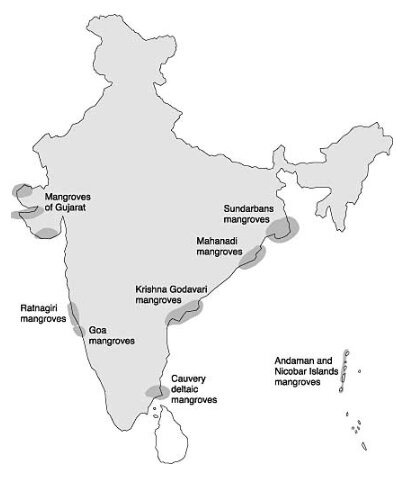Coringa Mangroves | 19 Jun 2019
The Andhra Pradesh Government has constituted a seven-member committee for fulfilment of norms required for proposing the Godavari Mangroves (Mada forests), at Coringa, as a World Heritage Site.
- Godavari Mangroves at the Coringa Wildlife Sanctuary (CWLS) are touted to be the second largest mangroves in India. The largest mangrove forest in the world is Sundarbans, West Bengal.
- The mangrove forests in Andhra Pradesh are located in the estuaries of the Godavari and the Krishna rivers. The Godavari mangroves are located in Godavari estuary of East Godavari district.
- Located in Andhra Pradesh, the CWLS is home to numerous endangered species including the fishing cat, otter, jackal, sea turtles, sea gull, pelican, stork, heron, snipes, flamingos among others.
- Along with the mangrove forest, the Hope Island, a naturally formed sandy stretch amidst the sea that turned into a synonym for biodiversity, too comes under the purview of the sanctuary.
- The sanctuary also has a site where Olive Ridley Sea Turtles nest from January to March every year.
- Once the Coringa sanctuary gets the heritage site tag, UNESCO will help develop tourism and protect the wildlife in the mangroves.
Mangroves
- Mangroves are the plant communities occurring in inter-tidal zones along the coasts of tropical and subtropical countries.
- Mangrove forests perform multiple ecological functions such as production of woody trees; provision of habitat, food, and spawning grounds for fin-fish and shellfish; provision of habitat for birds and other valuable fauna; protection of coastlines and accretion of sediment to form new land.
- According to the India State of Forest Report, 2017, India has nearly 3.3% of the world’s mangrove vegetation.

